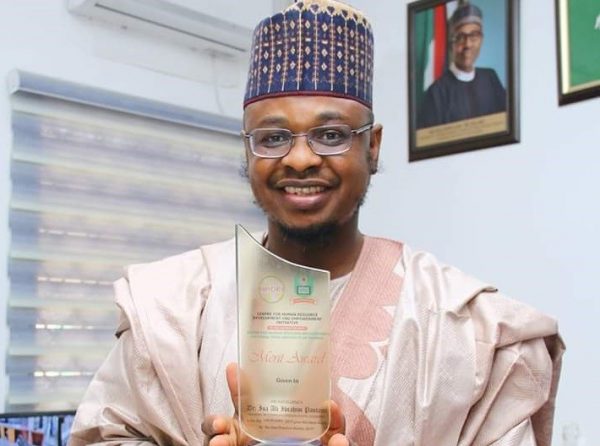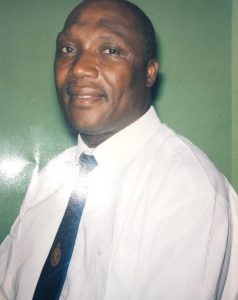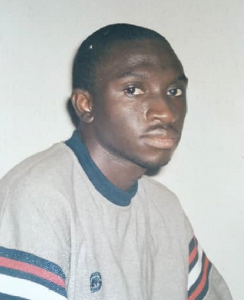Headlines
Pantami was Chief Imam at mosque where Christian student was murdered in 2004

BY KAZIE UKO
Nigeria’s embattled Minister of Communication and Digital Economy, Isa Ali Ibrahim Pantami, was the Chief Imam at a mosque in Abubakar Tafawa Balewa University (ATBU), Bauchi, where a Christian student was murdered in 2004, on allegation of blasphemy against Islam.
This reopening of old wound comes amid growing calls by Nigerians, including lawmakers, for Pantami to resign or be sacked by President Muhammadu Buhari, over the minister’s affiliation and expressed sentiments in favour of some terrorist groups.
Pantami’s alleged link with terrorist groups such as Al-Qaeda, the Taliban and Boko Haram dates back to the mid-2000s. In one of his comments, he was quoted as saying, “We are all happy whenever unbelievers are being killed, but the Sharia does not allow us to kill them without a reason.”
On another occasion, when the Nigerian Army, under former President Goodluck Jonathan, came down hard on the Boko Haram terrorists, Pantami allegedly described the action as genocide. “See what our fellow Muslim brothers’ blood has turned to? Even pig blood has more value than that of a fellow Muslim brother… You caught someone sleeping and you killed him. If it is not Muslims that undergo such treatments who else?” Pantami was reported as saying in defence of the Boko Haram elements.
Pantami’s defence – I was young
Even though the minister acknowledged making comments favourable to these known terrorist groups in the past, he, however, said that he had since changed his world view of those groups, claiming that he now knew better about those earlier comments attributed to him.
“For 15 years, I have moved round the country while educating people about the dangers of terrorism.
“I have travelled to Katsina, Gombe, Borno, Kano states and Difa in Niger Republic to preach against terrorism.
“I have engaged those with Boko Haram ideologies in different places. I have been writing pamphlets in Hausa, English and Arabic. I have managed to bring back several young persons who have derailed from the right path.
“Some of the comments I made some years ago that are generating controversies now were based on my understanding of religious issues at the time, and I have changed several positions taken in the past, based on new evidence and maturity.
“I was young when I made some of the comments; I was in university, some of the comments were made when I was a teenager,” Pantami said while delivering his daily Ramadan lecture at Annor Mosque in Abuja last Saturday.
House Minority Leader, Elumelu, calls for Pantami’s sack
But the minister’s repentance appears not to appease a good number of Nigerians, including the Minority Leader of House of Representatives, Hon. Ndudi Elumelu, whose effort to get the House adopt a motion for Pantami’s sack was technically deflected by the Speaker, Femi Gbajabiamila.
“Mr Speaker, my privilege borders on one of the serving ministers called Sheikh Ali Isa Ibrahim Pantami. He is the Minister for Communication and Digital Economy of the federal republic. And the portfolio that he currently occupies gives him the free latitude to administer, coordinate and manage flow of sensitive information within and outside the shores of Nigeria.
“Mr. Speaker, there have been insinuations that he has direct links and personally subscribes to the extreme Islamic beliefs of Al-Qaeda, Taliban and Boko Haram sects. Evidence compelling the cyber space lays strong credence to a relationship and existing mutual collaboration between him and the deceased Yemen terrorist.
‘’Recently, Mr speaker, while the minister was answering questions during his daily Ramadan lecture a few days ago, he owned up that he took extreme positions in support of the brutal exploits of Al-Queda and Taliban out of ignorance, claiming that he was young when he did that but now, he is matured.
“Mr Speaker, I feel it will be out of place for me to sit here and allow this chamber not to speak about it and totally call for his resignation or suspension,” Elumelu had entreated the House.
In a recent interview with The Niche, Professor Samuel Achi, former director-general of Chemical and Leather Technology (now National Institute for Leather Science and Technology), Zaria, recalled the events of December 9, 2004, when he received the news that his first son, Sunday Nache Achi, a 400-level student of the Abubakar Tafawa Balewa University, was murdered inside the university mosque by Muslim students, over allegation that he circulated a tract that the assailants claimed contained blasphemous content.
EXCERPT from the interview:
How have you been coping with the gruesome events that happened in December 2004 when you learnt that your son was killed in ATBU? How did you take the news?
Well, in the first place when it happened, it was my pastor that called me when I was in a hotel room in Abuja. I was a chief executive officer of a federal government establishment at that time under the Federal Ministry of Science and Technology. I was called to go to Abuja to see the minister. Immediately I was told of my son’s death, I had to be bold. I want to say that God gave me the grace to be bold to keep the information to myself when I got the information around 2 o’clock in the morning of December 9, 2004.
The discussion I was to have with the minister was supposed to be very crucial to the existence of the agency I was heading. So, God gave me the grace that I was able to control my emotion. We had a very nice discussion. It was after the meeting that I confided in the minister, Professor Turner Isoun. So, I went back.
Unfortunately, it was true. It has not been an easy road since then because the trauma was so much – my first son! Definitely, it was a very traumatic experience. Thank God because God has been our mentor. We have actually committed everything to him. To him has been the glory and he has been able to comfort us. Even the church and everybody else. We find solace in so many people coming to comfort us. Even up till today, my colleagues and many other people have been calling me. Even these few days that this thing (Pantami story) has been going on, I’ve received so many calls as well. So, it’s only the grace of God that has kept us going. And of course, I want to emphatically say that as a Christian, I’m happy to know God because if I didn’t know God, or if my family didn’t know God, what we would have done would have been detrimental to the existence of so many other things. But we took it as Christians and we gave God the glory. And as such, definitely, God has comforted us. You can see that not long after, I became a professor and I’ve been living above board by the grace of God.
Can you tell us a bit about your son because we learned that he was killed as a result of participating in evangelism outreach? What can you tell us about him?
Well, I’m happy to say that God enabled us to bring him up as a very good Christian. He was someone who was taking the word of God seriously. When he went to ATBU, we saw that he continued his good works in the (Christian) ministry. A turnaround was when he came on a holiday and informed us that he had been elected by his colleagues to be the ECWA student ministry leader in the university. I told him it was fine. In fact, it was with apprehension that his mother accepted it. But we prayed for him. We asked God to take care of him. I’m sure a lot of information is in the archives. If you browse his name on the internet, you will see a lot of information. The Christian networks have written so much since that time.
That day that you mentioned, December 9, 2004, when you got the news, was it the time it just happened or it had happened a while ago before you got the call?
Well, I was told that it happened about one and a half or two hours earlier.
After the incident, were you able to get a full picture of what happened?
Well, I got the full picture. But as I said, it is not something that I really want to discuss. But one thing I know that you people (media) got wrong is that he was not stoned to death. He was strangled inside the mosque and they threw the corpse outside the university mosque.
Did you get any visitor from the university? Did they come to you?
Yes. The university came to condole with us. They officially came to condole with us.
Was there any kind of investigation to find out what led to that incident?
Well, I didn’t pursue that.
What about the university? Are you aware if they did that?
I cannot say.
One of the information that is in the public domain, from Wikileaks, is that the Minister of Communications and Digital Economy, Isa Ali Pantami, was expelled from the university because of a sermon he preached which resulted in violence. So many connections have been drawn between his sermon and what happened to your son. Do you also find the connection?
I cannot talk about that. It is not conducive for me to talk about that.
But as a father who wouldn’t want that to be done to another person’s child, what do you think are the measures that need to be put in place to forestall such a violent incident?
On paper, Nigeria is a secular state. But in practice, I want to categorically say that it depends on where you are that you can actually practice your religion freely. So, that freedom of expression, freedom to practice your religion should actually be given to everybody. It is very sad. It’s been more than 15 years now since this thing happened, and things are really getting worse.
The government needs to do a lot more. I can also say here that we should practice our religion the way we are expected to, without any fear of interference from anybody. Let me take you back to the period when it happened, maybe because I was chief executive of a federal government set up …
What agency was that?
The Federal College of Chemical and Leather Technology.
Okay. Go ahead, sir.
So, as at that time, the presidency played a very good role, and I commend the then president, His Excellency, Olusegun Obasanjo. He got the message and even though he didn’t talk directly with me, the then Chaplain of Aso Rock Chapel, Professor Yusuf Obaji, had a discussion with me. From it, what they understood was a direct religious intolerance. And he pleaded with me as a Christian to forgive and actually forget everything because the boy died in a very noble Christian way. So, I don’t think there is much to say again.
But going back to your earlier question on the tract, I saw the tract after the incident. And in fact, I was shocked to hear that such a tract could be the cause of my son’s death. But there is a climate of intolerance, and when people are not doing what they are supposed to be doing, people who have been assigned the responsibility of leadership either in the church or mosque or other secular organisations or wherever, if you fail to actually give out a message of peace, definitely you have failed.
The Chief Imam of the mosque was the person that ahh …. In fact, I have been aware of this information a long time ago. But I kept it to myself because it was not something that was worth thinking about.


